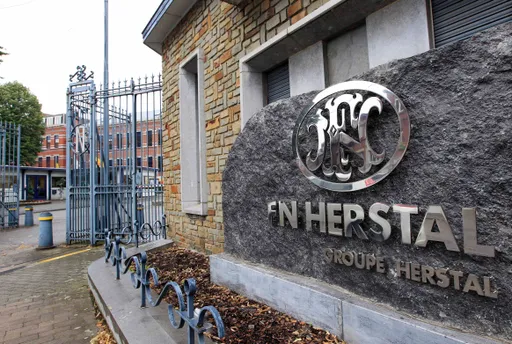Chocolate producers face increasing pressure from investors, consumers and governments to ensure that cocoa beans are not produced using child labor in West Africa.
However, most of the cocoa, the main ingredient for chocolate, is still produced using child labor.
The majority of the world’s crop, about two-thirds of the world’s cocoa, is grown on small farms in remote regions in Ghana and Ivory Coast.
Child labour has increased to 45 percent in those countries and an estimated 2 million child labourers work on cocoa farms, according to a study by the University of Chicago.
Nestle has announced that it will start paying cocoa farmers cash if they send their children to school rather than out to tend crops in order to tackle the issue.
The massive Swiss multinational, criticised for allowing children to be used in producing their chocolates, said it will triple its current annual spending on sustainable cocoa to a total investment of $1.41 billion by 2030.
"Only by tackling the root causes, we will have an impact," Nestle's Head of Operations Magdi Batato said.
To check that children really are attending school and farmers are following the rules, IDH, The Sustainable Trade Initiative, will monitor the programme with other third parties.
"We're very confident this will be a game changer on the road to reducing the risk of child labour," said Batato.
Under the new programme, farmers will receive direct cash payments via mobile transfer of up to $543 a year, which Batato said represented 20-25 percent of a farmer's average annual income.
The incentive will then level around $270 after two years and progressively extended to all of Nestle's 160,000 cocoa farmers by 2030.
Unlike current premiums that are paid per tonne and can encourage overproduction, Nestle, which used over 436,000 tonnes of cocoa in total in 2020, said it would pay farmers and their spouses directly, independently of volumes produced.
"An incentive to the household is much more inclusive of the smaller farmers, really making sure that nobody gets left out," Head of Confectionery Alexander von Maillot said in the interview.
Nestle is going to launch KitKat products next year made with cocoa from farms that received cash incentives.
Von Maillot said the company's efforts might ultimately lead to higher prices for consumers.
The challenge of tracing the origin of cocoa
The prevalence of children doing hazardous work, including using sharp tools, has also gone up in the world’s top two cocoa producers, according to the study funded by the US government.
The levels were higher than in 2010 when companies including Mars, Hershey, Nestle and Cargill agreed to reduce the worst forms of child labour in Ghana and Ivory Coast’s cocoa sectors by 70 percent by 2020.
Tracing the origin of cocoa beans is extremely difficult, in part because co-ops regularly buy from growers who are not members.
Nestle said it wants to purchase all of its cocoa through a fully traceable, directly sourced supply chain by 2025.
However, only 51 percent of the cocoa it used in 2021 was directly sourced and traceable.
‘Using child labour to get cheap cocoa’
Last year, the cocoa industry also faced allegations that young children are being used to work on farms harvesting cocoa beans.
Eight children claimed they were used as slave labour on cocoa plantations in Ivory Coast and launched legal action against seven of the world’s largest cocoa companies.
The companies have been accused of aiding and abetting the illegal enslavement of thousands of children so they can “continue to benefit from cheap cocoa.”
Nestle, Cargill, Hershey, Olam, Mars, Mondelez and Barry Callebaut are named as defendants in the case, and a filed opposition brief alleges that they formed a “venture to allow them to continue benefitting from cheap cocoa harvested by forced child labour”.
The companies claimed that there was not sufficient evidence to connect them to the abuse allegedly suffered by the eight plaintiffs.
Although those cocoa companies have all made pledges to tackle the issue, they were criticised for continuing to use forced child labor while pretending to solve the problem.
Child labour is worse than before
Numbers suggest that the problem is getting worse, despite promises from large chocolate producers.
There are a lot of children who are tricked or sold into slavery on those farms where they are forced to carry heavy loads of cocoa, use harmful pesticides, and handle machetes.
Multinational chocolate firm executives have admitted that the cocoa supply chain is “broken”.
“The cocoa supply chain as it works today is broken,” John Ament, global vice president of cocoa at the privately owned company, said.
“It’s time to recognize this and to build a new model and a new approach that focuses on putting the smallholder at the center.”
The VOICE Network, a global grouping of non-governmental organisations and trade unions working on sustainability in cocoa, said Nestle's cash transfer plan was "a big step forward".
It added, however, that cash transfers were not a substitute for a commitment to paying a fair overall price for the bean and farmers were still vulnerable to low world market prices.























